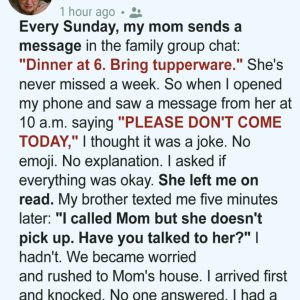We met on a dating app, and right away he stood out. Calm, articulate, a high-school history teacher who said he loved books, travel, and “real conversations.” For our first date, he insisted on taking me to my favorite restaurant—a very fancy one I’d only mentioned in passing.
“I want this to be special,” he said.
The night itself was flawless. We shared appetizers, cocktails, and laughed through dinner. He told charming stories about his students and his passion for teaching. Dessert came, then coffee. When the bill arrived—over $500—he waved it away without hesitation.
“Don’t even think about it,” he smiled. “I’ve got it.”
I thanked him, genuinely appreciative. Everything felt… almost too perfect.
Then, as we were waiting for the valet, he leaned in and said quietly, half-joking, half-not:
“So… just so you know, I don’t really believe in women who expect men to pay. I covered tonight because I wanted to see if you’re the type who thinks she *deserves* it.”
I laughed awkwardly, unsure what to say.
He continued, his tone shifting.
“You’d be surprised how many women owe me after dates like this,” he added with a grin. “I think tradition is dead—but if I pay, I expect gratitude. Loyalty. Effort.”
Something in my stomach dropped. It wasn’t the money. It was the implication. The quiet sense that this dinner had been some kind of test… or worse, leverage.
When I got home, I replayed the night in my head. His words. That look. The way generosity had turned into entitlement in a single sentence.
So I made a decision.
I blocked him.
No dramatic speech. No argument. Just silence.
The next morning, I woke up to a calm, clear feeling—relief. Weeks later, a mutual acquaintance mentioned him in passing.
“Yeah,” she said. “He keeps complaining that women ‘use him’ and disappear. Says he doesn’t get why.”
I smiled to myself.
Because I did.
That $500 dinner didn’t buy him access, control, or obligation—and the moment he thought it did, he lost something far more valuable.
My respect.





